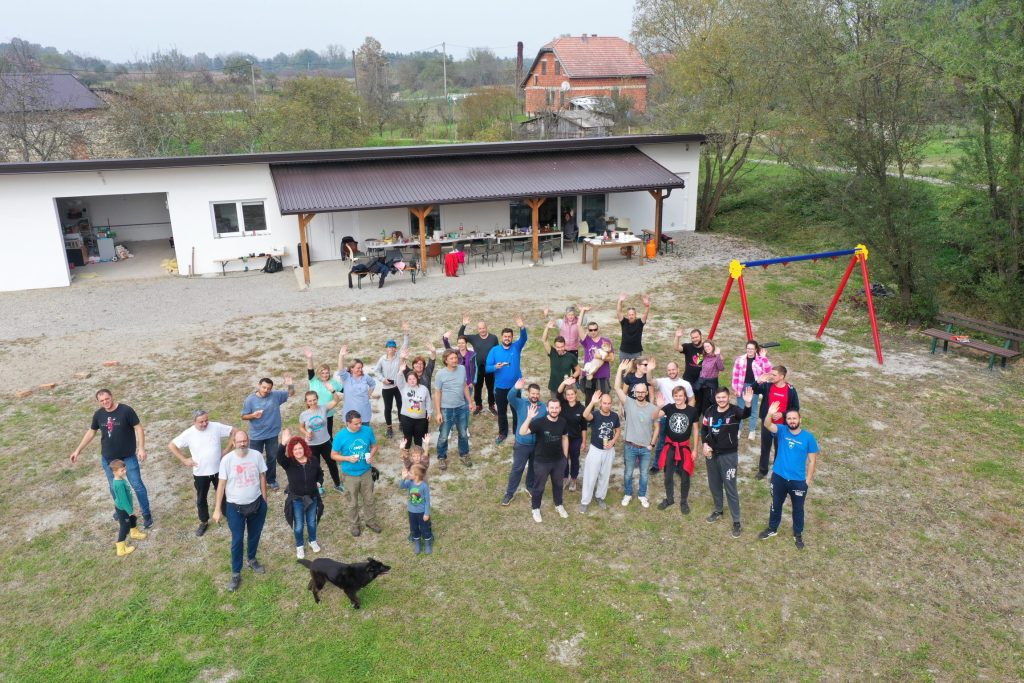We have written before about the successful implementation of an e-learning system in the Croatian Tax Administration, a dispersed organization which has over 4.000 employees. The importance and the value of digitalization of educational processes has been recognized by the government which has given prominence to e-school (e-learning) as a strategic project.
This time we won’t bother you with technical details, but remind you that it’s time that you yourself think about digitalization of education in your own organization.
Moodle (Modular Object-Oriented Learning Environment) is the most widespread open-source LMS (Learning Management System) platform in the world. It sounds astounding that this platform is used on over 88.000 registered e-learning systems which are used by over 75 million users.
And now we are going to explain you why…
Scalability and customization
Moodle primarily holds its roots in the academic community and provides highly functional online access to education to thousands of students without any extra efforts. There are no limits in the number of users (students who use a certain portal), in the scope of the educational materials and courses which the user wants to present. The organization which wants to implement its e-Learning system on the Moodle platform will not have additional costs in case of an increase in number of employees, which is a big advantage in comparison to other platforms.
When implementing the platform, the additional advantage lies in the fact that it’s easier to integrate it with your employee repository (LDAP, AD…) which considerably shortens the implementation time. In case the number of employees and the organizational structure specifics make the access to all of the employees difficult, you will simply put up instructions on how to use the system on the home screen. This scenario makes the transfer from the technical implementation to start of the employee education possible by sending just one group e-mail.
Many different modules are available for implementation in the system and they ensure that the system has all the characteristics needed for high quality education while at the same time you implement exactly what you need. We will talk about the functionalities later in the article, but we will just highlight the fact that many file formats are supported, such as doc, pdf, ppt and those prepared according to the SCORM standard.
We will also highlight the fact that the system will not use up much of the server resources and it will not require you to get additional licences for the use of the technology. In order to implement this platform you will need to invest in: the initial implementation, customization according to your needs (without additional annual licensing fees), the inevitable system maintenance and possible future upgrades and further customization. We’re confident to say that those reasons are more then enough for us to say – it pays off to choose Moodle.
Ease of use and collaboration
Whether you are a student or an administrator of educational materials, modules and reports, you have a 24/7 access to the whole system through web, wherever you are.
Within the system you can easily define the hierarchy of users. For example, we can segment the users in these groups:
- Administrators –people responsible for proper content administration
- Mentors – those who are „specific knowledge officers” and can have various roles within the system – educator, student contact person and similar.
- End users – who are given plenty of ways to self-administer within the system.
Main functionality is definitely the implementation of a specific course. The numerous easily applied options enable the administrators to share and post all the educational materials according to a schedule and to enable the users to take tests and fill out various questionnaires and surveys. The tests can also have many different options: single correct answer, multiple correct answers, filling in the correct answer or writing an answer in an essay format.
After the course it is possible to issue detailed reports for the human resources department. They will not only have insight into the list of users who satisfied the conditions to take the course but will also have at their disposal the detailed statistics of all test results.
Development of the knowledge base is possible through different Moodle modules such as document archive or wiki pages. Besides that, it is possible to set up integrated stationary pages or post news on the home page using a simple CMS application. All of this will secure simple long-term material archiving and information availability for all of the employees, no matter when they are employed. Besides that, search function of all of the available content is built in.
Social orientation, creation of a knowledge base by the collective teamwork, is what sticks out as the biggest advantage of the Moddle system. These are some of the features that make that possible:
- Chat in real-time or sending messages to an implemented inbox
- Forum, which has an option to adapt the theme hierarchy according to the hierarchy of the users and courses. Besides that, each theme/subject can have allocated mentors who are responsible for the administration, user informing, and providing support during education.
- User survey, which is used to get feedback on the quality of education.
Conserving resources with a little bit of creativity
In the last part of this article we will present you few practical examples of biggest weaknesses of large companies and corporations with whom we work on everyday basis not only on the education system implementation but also through our Learn@CROZ education centre and the implementation of advance IT systems.
As we mentioned before, by combining the integration with the user repository, defining the hierarchy of users and course segmentation, themes and knowledge repositories it is possible to secure access to specific parts of the system just to a selected group of users. This way one part of the educational material is available to all, while part of the materials is only available to a specific group, such as the management. Advantages of this are that you gain information privacy and that you don’t burden or confuse the end users.
Great problems arise in the organizations with great workforce fluctuation when they have to fulfil state required education, such as Safety at work. By using the e-Learning system it is possible to considerably speed up this process by automatically placing notices and reporting in real time, resulting in confirmation that each employee went through all of the online educational material and passed all the exams. In coordination with the companies which issue certificates it is possible to automate the whole process and the certificate issuance, which results in reduction of resource use and cost cuts.
Similar to state education requirements, we can mention specific regulations for some sectors such as the financial. For example, Moodle makes possible that bank employees pass state required education and not only it can issue a report to the human resources department but also to a third party (in this case to a national bank).
Employee motivation and allocation of their time are frequent barriers to successful execution and improvement of education in an organization. In order to evade the multiday course “attendance” and taking the exams, and usually the travel to the location where the training takes place location, you can simply adjust specific courses. Each course can be segmented in equal parts, where the student can go on to the next level after he successfully passed the previous. The users can pass a certain course at their own pace according to their ability and obligations.
Even though we didn’t have enough of space in this article to describe all the functionalities and advantages of this e-Learning system, we believe we have at least intrigued you. Therefore, don’t hesitate to contact us, and we will gladly answer all your questions, organize a presentation and give you a demo of how a modern e-Learning system functions.
Related News




